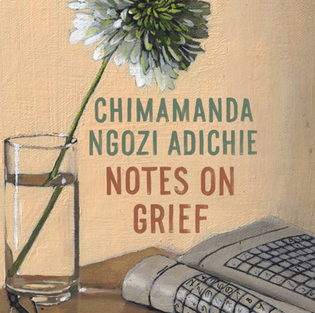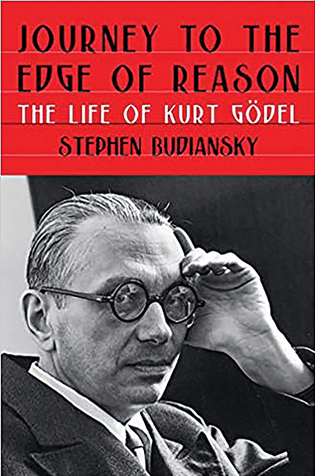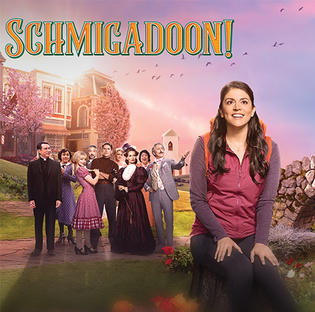
Notes on Grief
Chimamanda Ngozi Adichie ’08MA
Knopf, $16
Reviewed by Sylvia Brownrigg ’86
Grief, like love, is a universal that shocks in its particulars. The grief memoir, an expanding genre (Joan Didion, Elizabeth Alexander ’84), often begins with that terrible moment—of witness, or of being given the news—and from there builds both back and forwards. The bereaved author sketches in details about the person lost, so we can follow her as she copes with the stark new absence.
In June 2020, the Nigerian American author Chimamanda Ngozi Adichie ’08MA received a call from a brother in Lagos telling her their beloved father had suddenly died—just two days after the family had gathered for their weekly Zoom conversation, dialing in variously from the UK, the US, and Nigeria. At the news, Adichie writes, she “came undone.”
In short and potent chapters, MacArthur recipient Adichie, author of the novels Half of a Yellow Sun and Americanah, describes the rage and disorientation of grief, as well as its physical distress. “This is an affliction not merely of the spirit but of the body, of aches and lagging strength. Flesh, muscles, organs are all compromised.”
Yet the numbing isolation of mourning is counterbalanced by daily life: her four-year-old daughter covers the screen of Adichie’s phone when she plays videos of Grandpa, to try to keep her mother from crying, and meanwhile Adichie must confront the strange realities of death during a pandemic. Stranded in the US, she chafes at Nigeria’s closing of the airports, which thwarts the traditional Igbo funeral rites. Like families around the world, the Adichies wonder how to honor their deeply loved father when they are hampered by COVID rules and restrictions.
Notes on Grief pulses with Adichie’s adoration of James Nwoye Adichie, an eminent statistics professor at the University of Nigeria, whose pride in his famous daughter was equaled only by hers in him. She admires her father for his modesty and his faith, a man remembered as kind and wise, with a dry humor that “crisped deliciously as it aged.” In a time of so much global loss, Adichie’s succinct, lyrical eulogy is itself a kind of balm.
Sylvia Brownrigg is completing a memoir about her father and grandfather.

Journey to the Edge of Reason: The Life of Kurt Gödel
Stephen Budiansky ’78
Norton, $30
Reviewed by Richard Panek
In 1928 the mathematician David Hilbert challenged his peers to solve four problems. Do so, he promised, and their field would finally be a whole unto itself—consistent (containing no internal contradictions) and complete (relying only on basic axioms). A few months later Kurt Gödel, a 23-year-old PhD candidate at the University of Vienna, solved the fourth problem as part of his thesis. The other three problems, however, he didn’t solve. Instead, the following year, he did something even more radical. He proved they had no solution.
In Journey to the Edge of Reason: The Life of Kurt Gödel, Stephen Budiansky ’78 explores the seeming paradoxes that animated the logician whose Incompleteness Theorems revolutionized mathematics and philosophy. Unlike previous Gödel biographers, Budiansky had access to diary entries that Gödel wrote in shorthand. His goal, however, is not to penetrate that mind but to recreate the worlds that puzzled and, eventually, paralyzed it.
Gödel belonged to the Vienna Circle, where his interpretation of math as a reality independent of human creation was a distinctly minority opinion. He regarded the anti-Semitism and anti-scientism in pre-Anschluss Austria with a kind of dispassion, even after the assassination of a close friend, the philosopher-physicist Moritz Schlick. And as a member of the Institute for Advanced Study, he befriended Einstein but also “astonished visiting members . . . by casually remarking that he did not believe in evolution or natural science.”
Such a mind might well be impenetrable. Gödel’s facility for “reducing confusion to order with a few deft insights” awed his contemporaries, yet he somehow remained ignorant of Kafka and Mahler until he was in his mid-50s. To what extent was this “mixture of depth and unworldliness,” in the words of one friend, a function of mental illness? Gödel entered a sanatorium before he was 30, after which, his wife told him, he didn’t seem “quite as intelligent.” The final 40 years of his life were a nightmare of hypochondria, conspiracy theories, and paranoid delusions that Budiansky recreates with terrifying lucidity.
Budiansky doesn’t speculate on the relationship between the two kinds of reason—logical and psychological. What he offers instead is just as valuable: a provocative case history in the tradition of A Beautiful Mind—a genius who can pierce the secrets of the universe but is powerless to discover his own.
Richard Panek, author of The Trouble with Gravity: Solving the Mystery Beneath Our Feet, teaches writing at Johns Hopkins.

Schmigadoon
Cinco Paul ’86 and Ken Daurio
Apple TV+
Reviewed by Randi Hutter Epstein ’90MD
It’s pretty tough to watch Schmigadoon, a spoof on musical theater created by Cinco Paul ’86 and Ken Daurio, without a goofy smile on your face. The plot revolves around two Manhattan doctors: Melissa (SNL’s Cecily Strong) and Josh (actor and comedian Keegan-Michael Key). They fall in love and then, when the romance fizzles a year later, head to a spiritual hiking retreat to rekindle their passion. A wrong turn traps them in Schmigadoon, a village of chipper townsfolk where anything, including the breakfast special, is an excuse to burst into song and dance.
The plot is a riff on the 1947 Broadway hit Brigadoon. In the original, two men stumble into a fairy tale of a Scottish town; one falls in love with a charming villager and must decide between her and his socialite fiancée in New York City. In Schmigadoon, the two doctors are desperate to get home (especially Josh, who hates musicals). But their only way out—according to a leprechaun played by Martin Short—is to reveal their true love. Easy enough! Except . . . it doesn’t work. Is their love not real after all? And so, for six episodes, yearning for New York, they search for true love with anyone in town.
The lyrics in Schmigadoon are intentionally silly, with nods to songs from shows including Annie Get Your Gun, Oklahoma!, and The Music Man. (Paul wrote both lyrics and music.) But the singers and dancers are seriously talented. Cast members include Fred Armisen (Portlandia), along with Broadway superstars Kristin Chenoweth, Alan Cumming, Jane Krakowski, Ariana DeBose, Aaron Tveit, and more. The series was directed by Barry Sonnenfeld and executive-produced by Lorne Michaels.
I’ll let you guess how it ends. But suffice it to say that getting there was hilarious.
Randi Hutter Epstein is the Writer in Residence at the Yale School of Medicine and the author of Aroused, a History of Hormones.
 loading
loading

